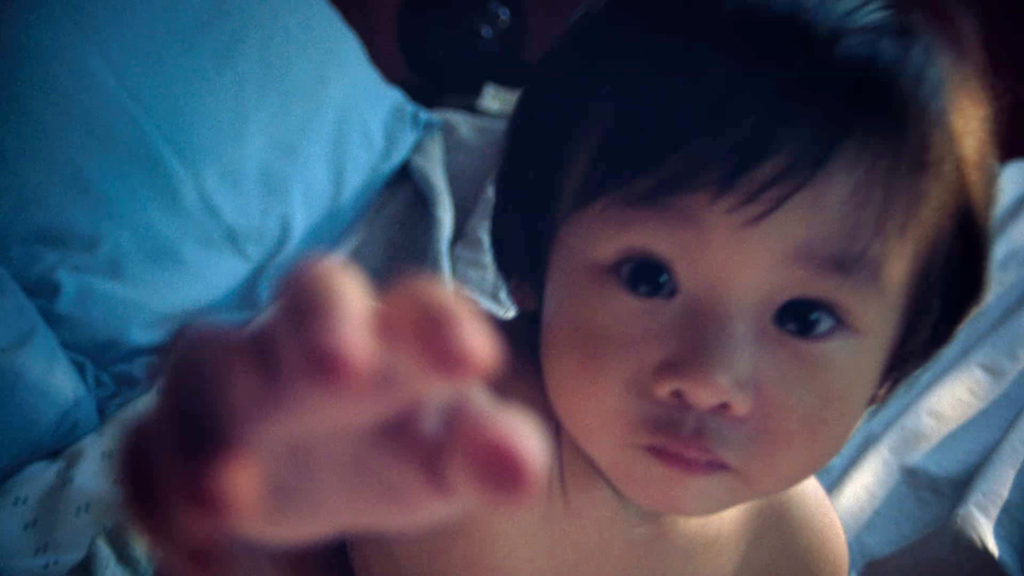After Yang
The caterpillar and the butterfly
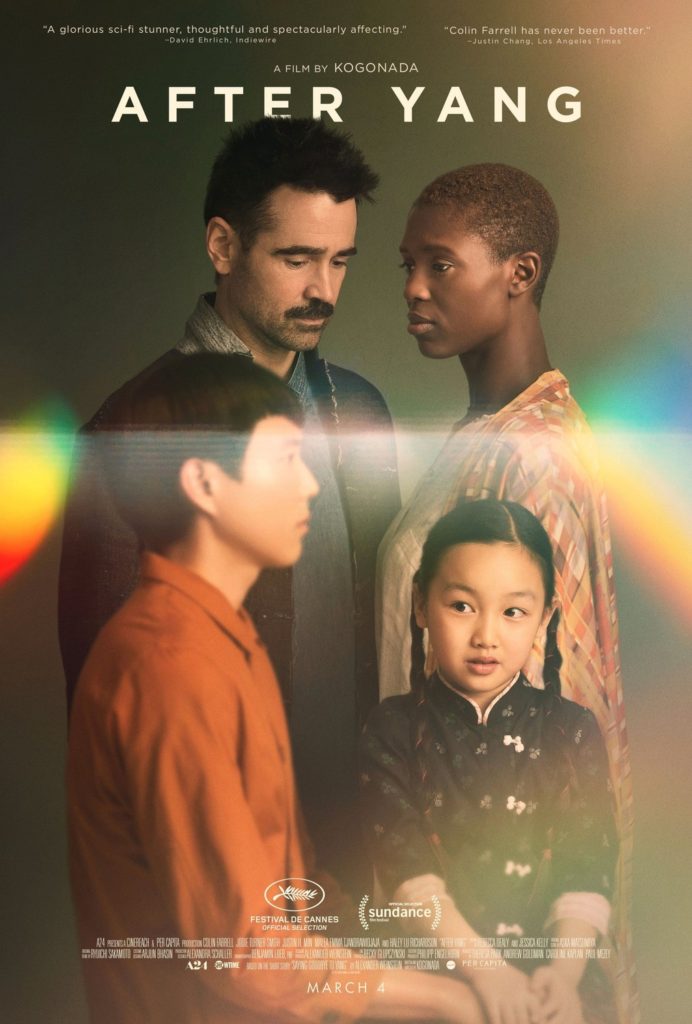
As my readers well know, science fiction is my favorite genre, because it allows you to imagine the future from the most different perspectives. In cinema, we have a wide spectrum of productions with different approaches and resources. Although superproductions take advantage of their epic proportions – and great power of distribution – others gain their place under the sun by the quality of the production and intelligence of the script. Among these latter I would highlight “After Yang” (USA, 2022), directed by Korean Kogonada.
The story takes place in an undefined future, where humanity seems to have evolved a lot. Things like self-driving cars, cloned babies and androids are part of everyday life. It is in this environment that we find the Fleming family: Jake (Colin Farrell), Kyra (Jodie Turner-Smith), Mika (Malea Emma Tjandrawidjaja) and Yang (Justin Hong-Kee Min).
The composition of the family is curious, as Jake is white, Kyra is black and Mika is Chinese, possibly adopted. The fourth member of the family is an android, an artificial humanoid, acquired to be the guardian and “older brother” of Mika, taking in his programming to help the girl to know the cultural heritage of her Chinese ancestors.
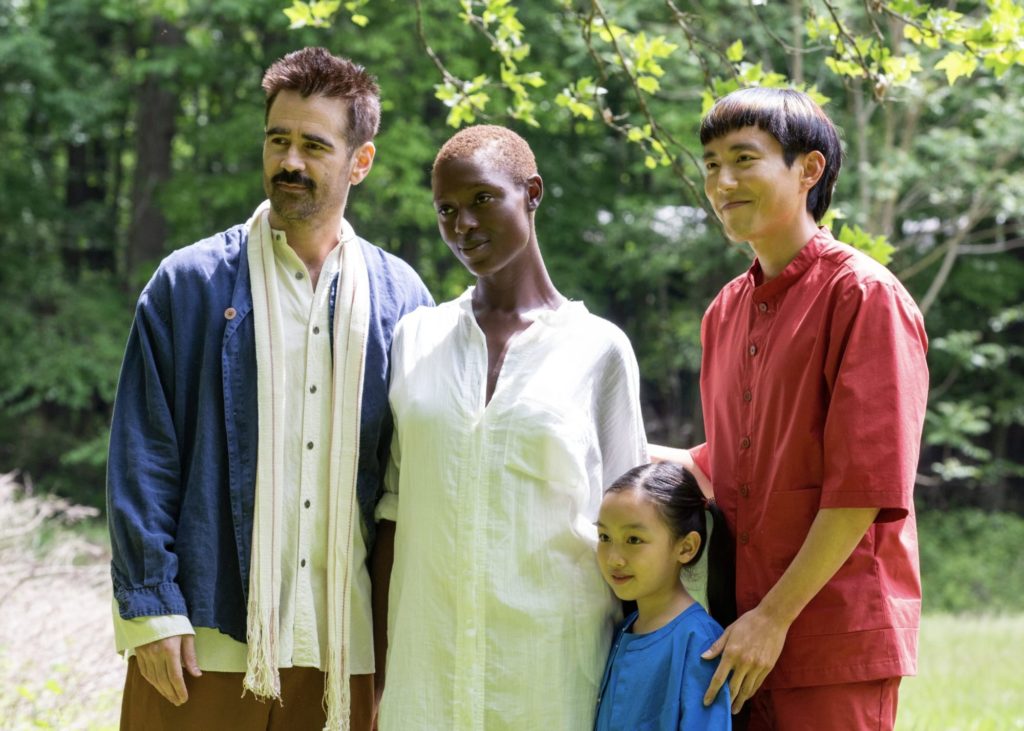
Everyone lives in harmony until the day when, after participating in a “family dance” session, Yang simply stopped working. Everyone became worried, especially Mika, because the android was the aggregating element of the family.
In trying to fix Yang, Jake discovers that the problem is more serious than he imagined. The store where he had bought the android no longer existed, and the manufacturer would simply make a replacement. Jake still hoped to recover the android, and takes it to a clandestine repairman, who reports that the problem is in the CPU. Jake is surprised to discover that Yang was from a generation of androids who recorded fragments of life with their owners, something totally illegal. Because of this, none of these models were fixed, since the order was to collect and destroy anyone from that generation.
When the repairman delivers the processor to Jake, he becomes intrigued and seeks help at an android research center. There he is helped by the researcher Cleo (Sarita Choudhury), who is excited about the possibility of studying an android like Yang, because the industry kept a total secret about how they work. She gets Jake a reader so that he can read the memories out of Yang.
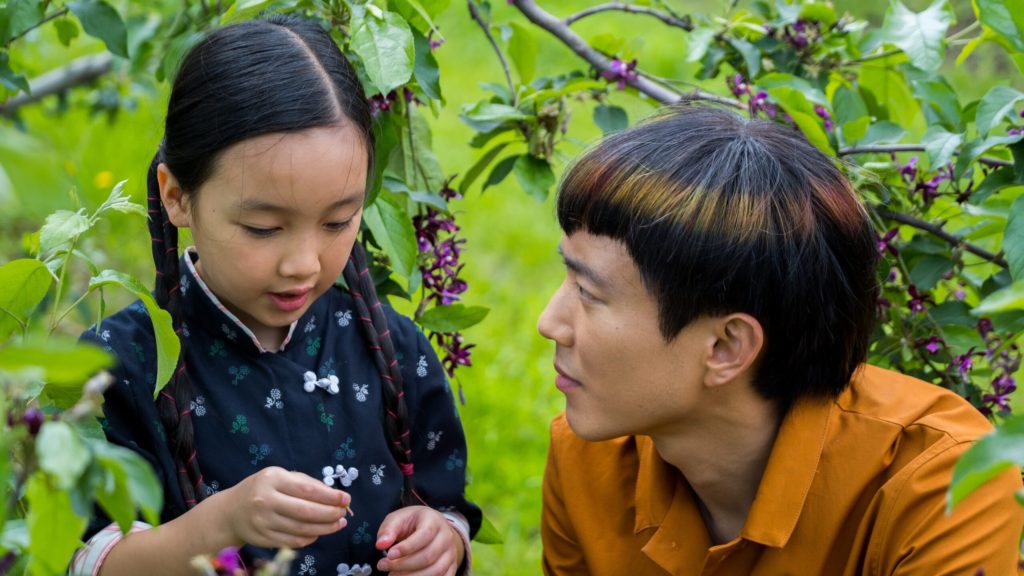
While watching these memories, Jake discovers not only his family’s routine, but also the android’s very complex dialogues with Kyra and himself, and most surprisingly, images of a totally unknown girl in the family.
Intrigued, Jake investigates further, and manages to meet with Ada (Haley Lu Richardson), who claimed to be Yang’s friend, and that they always met, talking a lot about various subjects.
This totally unknown side of Yang leads Jake to want to know more, and deepening further research into the android’s memories, he discovers about the first family he had served, and who would leave marks on him forever.
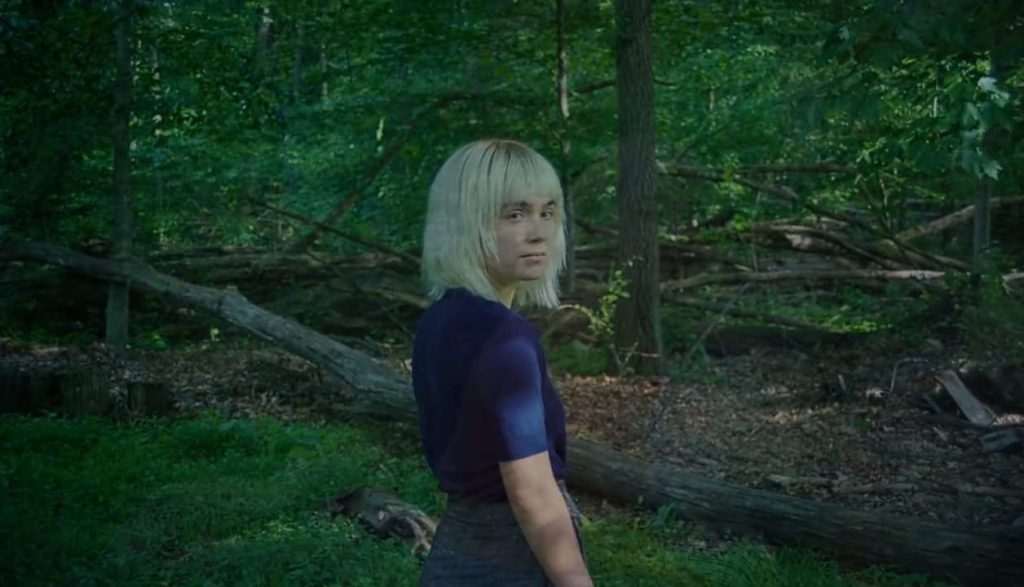
Although we can imagine that the construction of an android like Yang would be the result of a very advanced technology, it would not be impossible, having seen the evolution in this area. It would also come as no surprise to anyone that an artifact like Yang would be the object of affection for the whole family. After all, it would be all affection, protection, care and attention, who would not love something like that? The great provocation of the movie is: could an artificial being have feelings?
The film explores, all the time, through memories and dialogues, phrases such as “he loves this camera”, “would you like to try this tea?”, which induce the viewer to realize that Yang was out of the ordinary. On the other hand, when asked what he believed happen after death, he has as his answer “I wasn’t programmed to think about it.” That’s when he quotes Lao-Tzu, remembering that the end for a caterpillar is the beginning for a butterfly.
For the family, the end of Yang provokes a rebirth of their relationship, as they all lived immersed in their own worlds. It is with Yang’s absence that they realize that being husband, wife, mother, father and daughter demands a personal effort that makes them come out of their cocoons, becoming butterflies themselves. Accepting loss makes them grow.
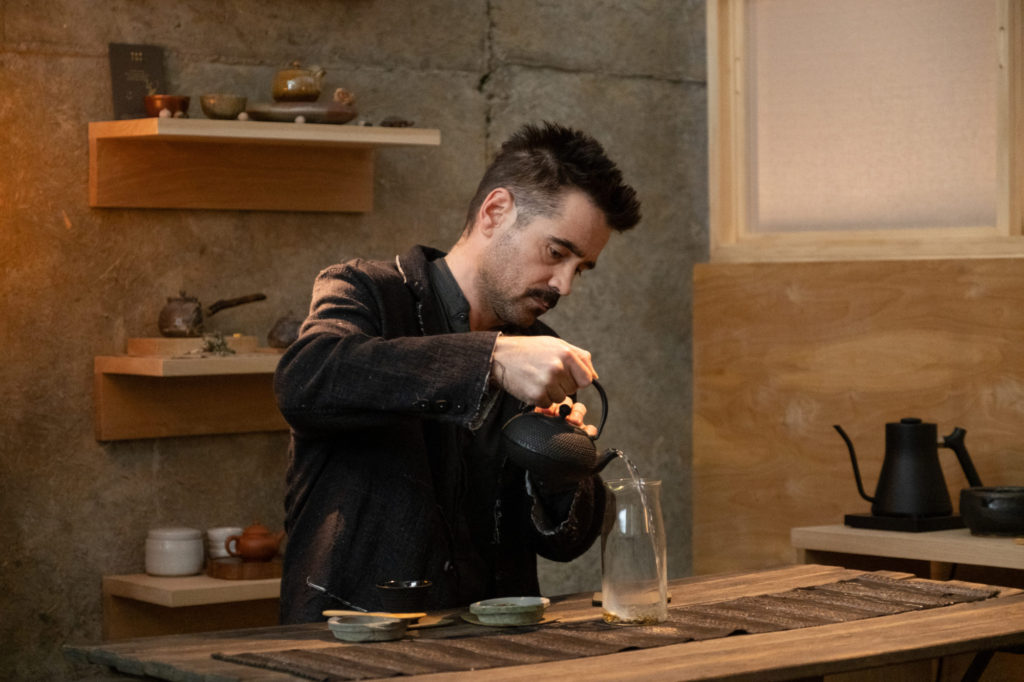
This film is exceptionally well made. The cast is multinational (Irish, English, Indonesian, Korean, American, etc.) and is very well, under the conduct of Korean director Kogonada.
One aspect that impresses in the film is the art direction and the costume design. While there is nothing high-tech, very common in science fiction movies, the sets and garments are absolutely convincing in creating the futuristic environment.
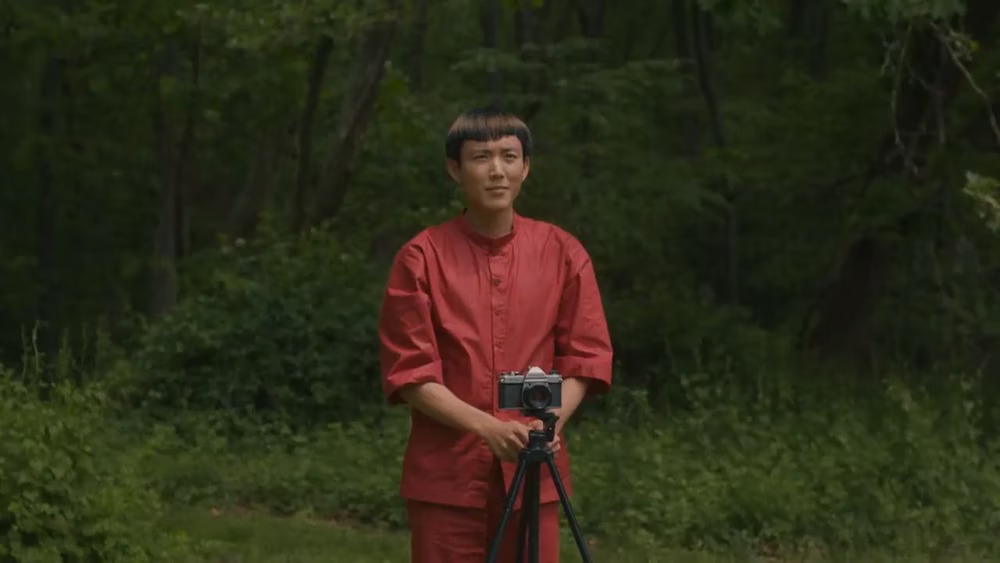
“After Yang” was the winner of this year’s Sundance Film Festival, and received the nomination for the Un Certain Regard award at the 2021 Cannes Film Festival.
The inspiration for the film came from the short story “Saying Goodbye to Yang”, from the book “Children of the New World” by Alexander Weinstein. The author signs the script alongside Kogonada.

